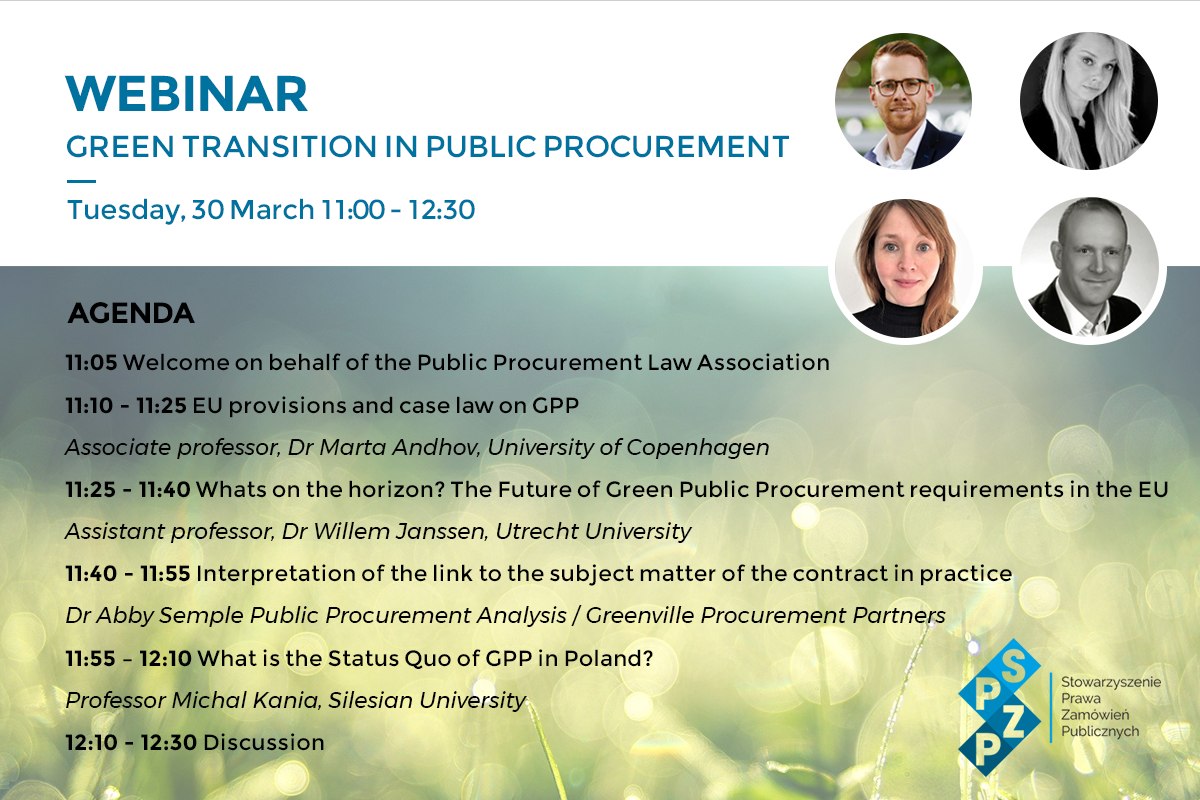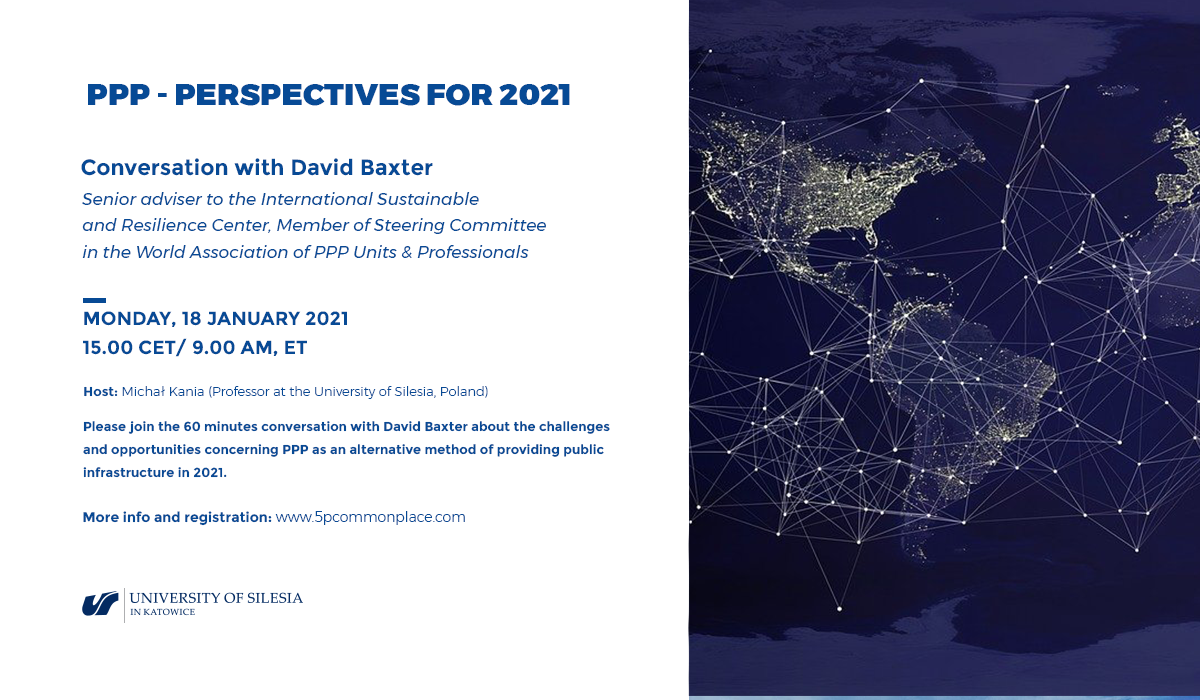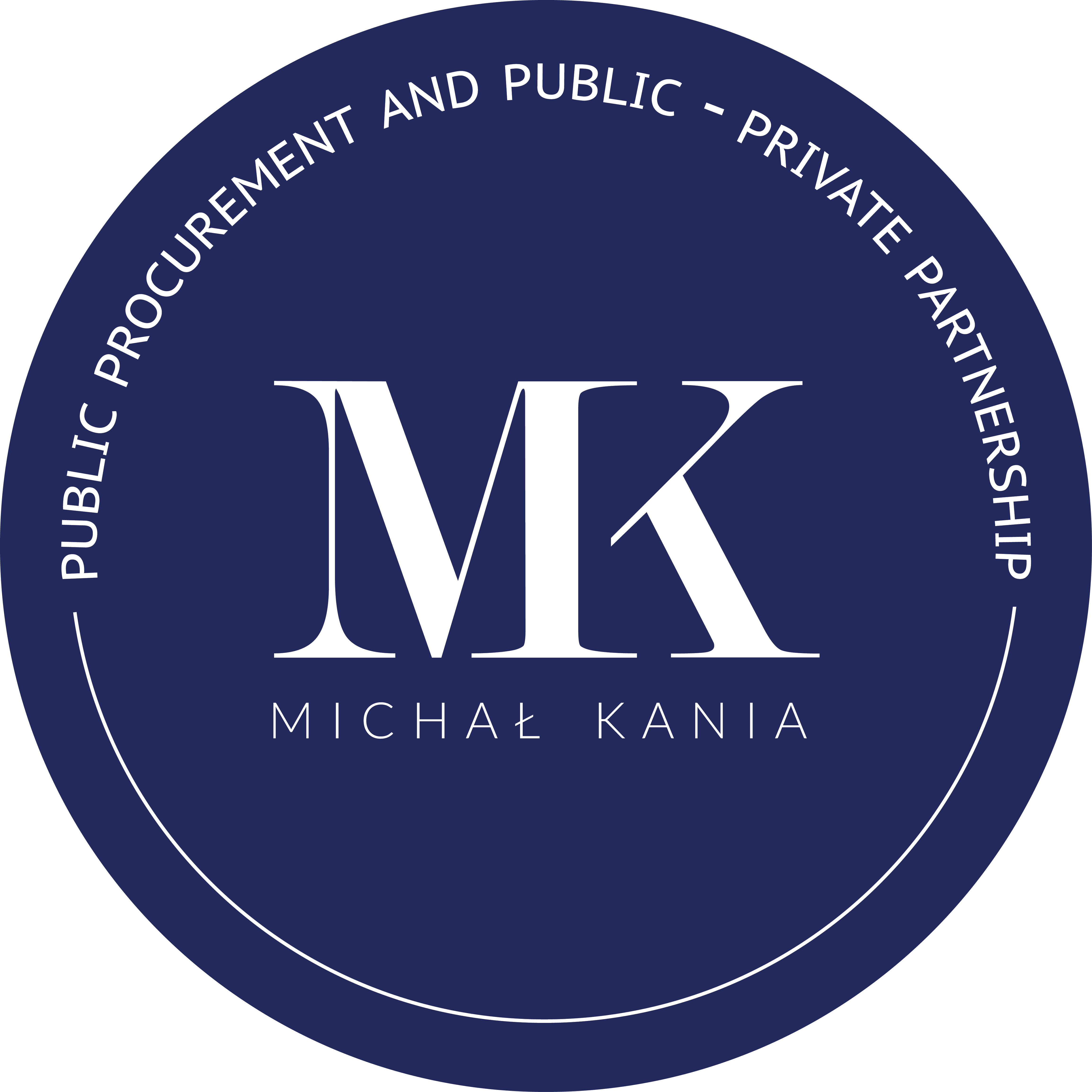Webinar: Green Transition in Public Procurement, 30 March 2021

Please join the free webinar on Green Transition in Public Procurement.
The webinar is organized by the Polish Public Procurement Law Association stowarzyszeniepzp.pl
Tuesday, 30 March 2021 - 11.00 - 12.30
Agenda:
11.05 Welcome on behalf of the Public Procurement Law Association
11.10 - 11.25 EU provisions and case law on GPP
Associate professor, Dr Marta Andhov University of Copenhagen
Marta Andhov is an associate professor in public procurement law at the University of Copenhagen Faculty of Law. Her main research interests focus on sustainability and governmental contracts. She is a co-host of the Bestek Public Procurement Podcast, a steering committee member of the Horizon 2020 project the Sustainability and Procurement in International, European, and National Systems (SAPIENS). In the past, Marta has provided her insight and expertise to key research projects for the European Commission, Danish Institute for Human Rights and multiple organisations and national procurement agencies. She is a well established and respected authority in sustainable public procurement with a vast publication list in leading journals and publishing houses. Her 2019 co-edited book, Cost and EU Public Procurement Law – Life-Cycle Costing for Sustainability, contributes to developing life-cycle criteria tools and public procurement methodologies in the EU. It includes both sector-crossing contributions, analysing the most relevant theoretical and legal aspects such as EU law and contract theory, and sector-specific contributions to some of the most important sustainable goods and services markets.

11.25 - 11.40 What's on the horizon? The Future of Green Public Procurement requirements in the EU
Assistant professor, Dr Willem Janssen, Utrecht University
Willem A. Janssen is an Assistant Professor in European and Dutch Public Procurement Law at the law department of Utrecht University, and a researcher at the Centre for Public Procurement and RENFORCE. In addition to his monologue ‘EU Public Procurement Law & Self- organisation’, he has published extensively in international and Dutch academic journals on pressing issues related to cooperation, sustainability, and societal value in the context of Dutch and EU public procurement law. Having been a visiting fellow at George Washington University, he is currently a visiting fellow at Copenhagen University in 2020-2021 and guest lectures at various universities and public institutions. He hosts Bestek – the Public Procurement Podcast, actively contributes to the public debate through various blogs and columns and aims to improve public procurement law and practice through his academic work.

11.40 - 11.55 Interpretation of the link to the subject matter of the contract in practice
Dr Abby Semple Public Procurement Analysis / Greenville Procurement Partners
Abby Semple, LL.B., Ph.D. is a consultant advising public bodies on strategic and legal aspects of procurement. Her main focus is on the environmental and social impact of public contracts and how these can be meaningfully addressed through the contracting process. Through her consultancy Public Procurement Analysis, Abby has managed complex tenders on behalf of public sector clients in Ireland and the UK, and developed policy and guidance at the EU level and in Germany, the Netherlands, Poland, Romania, Spain, Switzerland, Ukraine and the United States. Her writing and speaking engages with academic and practitioner audiences, including over 80 presentations and training sessions throughout Europe and the world. Abby is the author of one of the first books on the 2014 EU Procurement Directives A Practical Guide to Public Procurement, published by Oxford University Press in 2015. Her academic writing on topics including living wages and citizen participation in public contracts can be accessed on SSRN.

11.55 – 12.10 What is the Status Quo of GPP in Poland?
Professor Michal Kania, University of Silesia

12.10 - 12.30 Discussion
ADR in the new Polish Public Procurement Law

On March 16, 9:00-11:00 a.m. I will have the pleasure to participate in the 8th National Conference on Public Procurement on the topic: The new public procurement law - consequences and difficulties of implementation.
During my presentation I will address issues concerning new Polish regulation on ADR in public procurement contracts disputes. Contracts on public procurement regardless of their classification as civil law contracts, public law contracts, or mixed contracts have an important common feature. They give rise to disputes of an economic nature, the resolution of which usually takes place in the course of proceedings before judicial bodies. These disputes not only have negative consequences for the parties to the agreement - the contracting authority and the contractor - but also for the beneficiaries of some of the tasks carried out through public procurement. We are talking here above all about infrastructure investments implemented on the basis of public procurement. Saving time, continuing to carry out public procurement in accordance with previously agreed assumptions, as well as strengthening relations between the public and private sectors, justify a broader turn towards alternative methods of resolving and settling disputes that arise in connection with public procurement contracts.
It seems that this approach has been eventualy recognized by the Polish legislator in the new Act of 11 September 2019 Public Procurement Law. The legislator decided to introduce expressis verbis into the new law regulating the public procurement market in Poland solutions based on the so-called Alternative Dispute Resolution (ADR) methods. These methods are widely used in public procurement in countries such as the United States, where ADR appeared in the 1970s. ADR enjoys great popularity also in the countries of Western Europe, including Great Britain, the Netherlands, Spain or France.
The regulation contained in art. 591 - 594 of the new Polish Public Procurement Law provides explicitly the possibility of using out-of-court methods of resolving disputes arising from the performance of contracts in public procurement matters. These methods in practice include mediation and conciliation.
Mediation is an attempt to reach an amicable solution to a dispute to the satisfaction of the parties through voluntary negotiations conducted with the participation of a third party who is neutral towards the parties and their conflict, i.e. a mediator. The mediator is neutral, impartial, supports the negotiations, relieves tension and assists the parties in reaching a mutually satisfactory agreement and final settlement. Conciliation, on the other hand, is the examination of a dispute by an independent conciliator or a special conciliation commission (permanent or ad hoc), who will propose solutions that are acceptable to the parties to the dispute or that allow them to work out their own solution to the dispute. The parties to the conciliation procedure are not bound by the settlement proposal submitted to them and the choice of solution always rests with the parties to the dispute, while the conciliators are responsible for drawing up the final agreement (settlement).
Location of the basic provisions on out-of-court dispute resolution in the new Public Procurement Law allows us to assume that the intention of the legislator was to promote ADR in public procurement and to increase the number of settlements concluded against the background of contracts in public procurement matters. The construction of section X of the act, its title "dispute resolution" and the reference to art. 54a of the act on public finance, where the outcome of a settlement is said to be more favorable than the likely outcome of court or arbitration proceedings, indicates that the solutions contained de lege lata in the Public Procurement Law refer to mediation and conciliation proceedings. The broader concept of amicable dispute resolution includes arbitration, whose admissibility in the context of contracts in matters of public procurement results lege iuris from Art. 1154 of the Code of Civil Procedure.
It is worth pointing out several advantages of alternative methods of dispute resolution, which also apply to Polish public procurement disputes. First, ADR makes it possible to resolve commercial cases much more quickly than ordinary courts. The speed of the settlement (resolution) of a dispute should be in the interest of each of the parties to economic relations guided by the principle of effectiveness. For that reason, among others, it should also be important for the ordering parties, as defined in the Public Procurement Law.
Secondly, ADR in its assumption is connected with professionalization of entities conducting the proceedings. Neutral mediators, conciliators and arbitrators conducting arbitration proceedings should have appropriate qualifications, as well as experience in the scope of cases to be resolved. The courts of general jurisdiction do not always guarantee the appropriate level of knowledge of persons resolving disputes arising from public procurement contracts.
Third, above all with regard to mediation, it is pointed out that it replaces a situation of conflict with a consensual solution, which should foster proper relations between the parties in the future. The solution adopted by the parties assumes a voluntary and mutually satisfactory conclusion of the dispute, based on the win-win principle, and moving away from the winner-loser relationship.
Fourth, ADR seems to be of particular importance in the era of the Covid-19 pandemic. Due to the de facto temporary shutdown of common courts in the first phase of the lockdown, the growing number of cases led to significant dysfunction in the processing of disputes, which translates into a dysfunction of the entire economic turnover. The congestion in the ordinary courts has led to another prolongation of business disputes. An alternative to achieving a state of legal certainty during and after the pandemic may therefore be methods categorized as ADR.
A broader study on ADR in the new Public Procurement Law will appear in the next issue of the Public Procurement Journal C.H.Beck
PPP – Perspectives for 2021 - Conversation with David Baxter

Please join the 60 minute conversation with David Baxter about the challenges and opportunities concerning public - private partnerships in 2021. We will be discussing issues related to the current state of the PPP in certain regions of the world (USA, Africa, Europe), the role of PPP in the support of sustainable projects, the competition or coexistance between PPP and EU funds in Europe, will be looking into the lessons learned from Covid-19 pandemic and much more.

David Baxter - is a senior adviser to the International Sustainable and Resilience Center, Member of Steering Committee in the World Association of PPP Units & Professionals, independent consultant to governments, development agencies and institutions, and consulting companies around the world in the areas of ethical governance, procurement, PPP policy and practice, concession planning, and sustainable and resilient development planning.
David has deep relationships with several International Development Institutions including: The World Bank, UNECE in Geneva, USAID, the Millennium Challenge Corporation, Inter American Development Bank, and more.
ISRC founded in 2018 is one of 8 International PPP Specialist Centers of Excellence under the United Nations Economic Commission for Europe International PPP Centre of Excellence (UNECE-ICoE).
WAPPP is a Geneva-based, global, independent non-governmental organization. It aims to establish an international network of PPP units and PPP practitioners (both corporate and individual, public and private) involved in the design and implementation of PPP policies, initiatives, programs, and projects. By coming together, these industry players can create a win-win situation that benefits themselves and society. WAPPP members can share their experiences, help set industry standards, lobby for best practices, and generally network to find jobs, contracts, investors, and opportunities.
Registration: Conversation with David Baxter
People First PPP - Value for People, Value for future

On 15 December 2020 UNECE issued methodology to evaluate the sustainability of infrastructure projects by usage of PPP. UNECE People-first PPP Evaluation Methodology for the Sustainable Development Goals shall support efforts by providing a set of benchmarks and indicators to score infrastructure projects against the People-first criteria and the Sustainable Development Goals (SDGs). People-first PPPs are defined in the Guiding Principles and are summarised according to five specific outcomes: access and equity; economic effectiveness and fiscal sustainability; replicability; environmental sustainability and resilience; and, stakeholder engagement.
Access and equity
The SDGs are first and foremost concerned with improving access to critical services for social development and poverty eradication, recognizing that depriving access to one service can have huge negative impacts on people’s livelihoods and wellbeing. This outcome most reflects the SDG orientation on poverty eradication and social impact and more equitable forms of development. Equity could be broadly defined as equal access to the PPP project outputs/services, and that proactive measures are employed, where necessary, to ensure that the economically disadvantaged and those who suffer from social exclusion can also share in the project benefits.
Economic effectiveness and fiscal sustainability
Economic effectiveness and fiscal sustainability refer to the project’s contribution to economic growth and development through good quality jobs, women’s empowerment, etc. It also stems from the project’s ability to utilize efficiently all economic assets, generate profitability from affordable tariffs while allowing sustainable budget and debt management by the public party, including off-balance sheet debt and contingent liabilities.
Replicability
Replicability is the way in which the project can lead to the development of further projects. This can be done by the project itself training local staff and public administrations. At the same time, such scalability cannot come at the expense of higher social or environmental costs.
Environmental sustainability and resilience
Environmental sustainability refers to the protection and preservation of the planet and is a basic requirement of sustainability. Acting to combat climate change and its impacts is integral to the successful implementation to the SDGs. Resilience refers to “the ability of a system, community or society exposed to hazards to resist, absorb, accommodate, adapt to, transform and recover from the effects of a hazard in a timely and efficient manner, including through the preservation and the restoration of its essential basic structures and functions through risk management”
Stakeholder engagement
Stakeholder engagement means creating the right incentives for stakeholder engagement and public participation and encouraging investors to recognise the value of effective and inclusive stakeholder engagement and public participation. A more significant form of stakeholder engagement and public participation that is more in tune with the ethos of “People-first” is to engage directly with the communities affected by the projects and mobilise them through a collective body.
Methodology consists of three elements: 1. benchmarks and indicators that demonstrate achievement in each of the five People first PPP outcomes; 2. a weighting and ranking of these outcomes along with other issues pertinent to scoring; 3. a scoring system that can provide various stakeholders with the evaluations needed to revise and adjust their projects to make them more compliant with the People-first PPP outcomes and the SDGs.
More about the Methodology here
Investments under the''Premises for Land'' Act – a departure from PPP on the municipal housing market in Poland

On 16 December 2020, the Polish Parliament adopted the Act on the Settling the Price of Apartments or Buildings against the Price of Real Properties Sold from the Municipal Real Property Land Bank. The act will enter into force on 1 April 2021, as part of the National Residential Programme adopted under a resolution of the Council of Minister of 27 September 2016. The act, referred to as the “Lokal za Grunt” [Premises for Land] Act, is aimed at increasing the housing stock of municipal resources in Poland. As a rule, this task can currently only be implemented through the use of public-private partnerships, which in Poland are regulated under the Public-Private Partnership Act of 19 December 2008.
The advantages of municipalities applying PPP for the implementation of housing projects include: the accurate preparation of the project/investment due to the need to analyse the effectiveness and efficiency (Articles 3a and 3b); the transparency of the processes of selecting a private partner (Articles 4(1) and 4(2)); minimising the risk to reputation and the risk surrounding the appropriate performance of the private partner's obligations (Provisions from the Act on Public Procurement and the Act on Concession Agreements); the promotion of pro-environmental and pro-social solutions (Provisions from the Act on Public Procurement and the Act on Concession Agreements); and a clear path of reporting on the performance of obligations assumed by the private partner (Article 3(3)). Despite the existence of perfectly applicable PPP regulations, the Polish legislator decided to adopt a detailed “Lokal za Grunt” Act, once again undermining the importance of PPP in practice.
In the context of the adopted act, special attention should be paid to the content of Article 9(1) of the Act on PPP, which stipulates that a party’s own assets can be contributed, in particular through sale, making available, transfer for use, lease, or rental. This means that the Act on PPP does not currently set out any obstacles preventing the sale of a real property to a private partner who is a party of a PPP Agreement. In addition, even if the public entity decides not to sell the property to the private partner due to Article 12(1), if the public entity or the company referred to in Article 14(1) or (1a) sell the property constituting the contributed asset, the private partner can exercise the right of pre-emption within two months from being notified about the content of a relevant contract concluded with a third party, unless a longer deadline is specified in the agreement on public-private partnership.
The “Lokal za Grunt” Act specifies the rules of selling real properties from the municipal land bank of real properties, with the prices of such real properties being set off against the value of apartments or buildings handed over by the buyer of a real property to the municipality. It also regulates the method of dealing with apartments and buildings once they have been handed over to the municipality. The value of apartments or buildings handed over to a municipality in connection with an investor purchasing a real property sold from the municipality land bank may therefore be subject to settlement with the price of this real property.
The term “investor” is understood as an entity who a) applies to purchase real property from the municipal land bank, or b) an entity that has purchased real property from the municipal land bank and has set off the price of the real property against the value of apartments or buildings handed over to the municipality. The act does not set out any minimum requirements to be met by an investor. As opposed to the procedure of selecting a private partner under the Public Procurement Law or in the Act on Concessions for Construction Works or Services, the “Lokal za Grunt” Act is much more liberal with regard to these issues. According to Article 7 of the act, an investor’s offer is only obliged to provide basic information including: a) first name and surname or company name, b) address, phone number and email address, c) number in the National Court Register, if applicable, d) the legal form of economic activity, if applicable.
The municipal council decides about the sale of the real property (land) from the municipality land bank. The relevant resolution on the sale of the real property indicates, among other things: the minimum and maximum number of the apartments and buildings and the usable area, the designation of apartments or buildings, the minimum standard of apartments or buildings, the price per square metre of the usable area of an apartment or building. The selection of an investor should follow a tender procedure. The tender is announced, organised and conducted by the applicable body of the municipality. Therefore, as opposed to the Act on PPP, the basic procedure is introduced in the form of an open tender, leading to the sale of the real property, and, consequently to the selection of a private partner. The PPP Act offers entities significantly more opportunities to shape the agreement with private partners. It also requires carrying out appropriate analyses concerning the effectiveness of the management of the municipality’s real property before carrying out the procedure. In accordance with Article 3a(1) of the Polish Act on PPP, before initiating the selection procedure of the private partner, the public entity must perform an assessment of the effectiveness of implementing the project within the framework of a public-private partnership in comparison with the effectiveness of implementing it in any other way, in particular with the exclusive use of public funds. The choice of a private partner is itself the result of negotiations, most often conducted in a competitive dialogue allowing for the parties' expectations to be defined in some detail.
Among other things, the tender notice includes information concerning the minimum and maximum number of apartments or buildings and usable area to be handed over by the investor to the municipality as part of the “premises for land” settlement, as well as the minimum standard; the designation of the apartments or buildings to be handed over; the price of one square metre of usable area of the apartment or building to be handed over; the period in which the apartments or buildings must be handed over to the municipality – calculated from the date of transferring ownership of the real property sold to the investor; the asking price – not lower than the value of the real property as specified in the estimate enclosed with the draft resolution on the sale of the real property; the form, date and place of paying the tender bond and the amount of the bond, which is to be not lower than 5% and not higher than 20% of the asking price.
Therefore, the price submitted by the entities in the tender procedure will determine the most advantageous offer. Again, a much wider range of criteria enabling the correct selection of the most advantageous offer is provided for in Article 6(3) of the Act on PPP. Due to this provision, the criteria for evaluating the offers may be, in particular: 1) the division of proceeds from the project between the public entity and the private partner, including the proceeds in the form of a share in the profit of the company referred to in Article 14(1) or (1a); 2) the ratio of the public entity’s contribution to the private partner’s contribution; 3) the effectiveness of implementing the project, including the effectiveness of using the asset; 4) criteria referring directly to the subject of the project, in particular its quality, functionality, technical parameters, level of technologies offered, operational costs and servicing; 5) the division of project-related tasks and risks between the public entity and the private partner; and 6) the dates and amounts of planned payments or other considerations by the public entity, if any. The agreement concluded with an investor includes information about the investment, including the date of its completion, the price of the real property obtained as a result of the tender and the method of paying the price. The difference between the price of the real property obtained as a result of the tender and the value of the apartments or buildings that the investor undertook to transfer to the municipality as part of the “premises for land” settlement is subject to a cash payment. The agreement also sets out the investor's obligation to transfer to the municipality the ownership of apartments or buildings, as well as the price of apartments or buildings that the investor undertakes to transfer to the municipality as part of the "apartments for land" settlement.
If the apartments or buildings are not subsequently transferred to the municipality in accordance with the requirements arising from the obligation, the investor will be obliged to pay the municipality a sum of money amounting to 150% of the value of the apartments or buildings that it undertook to transfer to the municipality as part of the “Lokal za Grunt” settlement. Once again, it is worth pointing out that the Act on PPP protects the interests of public entities, in this case municipalities, to a much greater extent. In accordance with Article 9(2)of the Polish Act on PPP, if an asset contributed by a public entity is used by the private partner in a way obviously contrary to its intended use as specified in the public-private partnership agreement, the private partner must transfer that asset to the public entity in accordance with the principles specified in the public-private partnership agreement.
Public Procurement and Public Private-Partnership

Public Procurement and Public Private-Partnership (PPP) are methods, which can support public sector in achieving common golas, such as: sustainability and innovation of public infrastructure. Public procurement and PPP shall respond to the current global challenges such as combat of pandemia, implementation of 4th Industrial Revolution benefits, 5G, building Smart Cities, responding to geostrategic challenges and improving of eco-innovation. The role of academics, both private and public sector is to support the public procurement and PPP in common public mission.

Michał Kania, professor at the University of Silesia in Poland, Senior Researcher at the Centre for Private Governance (University of Copenhagen), legal adviser with 16 years of practical experience in PPP, public procurement and concession contracts, member of the Just Transition Research Group at the University of Silesia. Active member of the Public Procurement Association in Poland, Visiting Fulbright Scholar at the George Washington University (2018-2019), Fellowship of German Academic Exchange Service at the Ludwig Maximilian University in Munich (2017), author of more than 100 publications regarding PPP, public procurement law, administration law and administration procedure, speaker at the Polish and international conferences, initiator and lecturer at the Postgraduate Studies in Public-Private Partnership and Public Procurement at the University of Silesia, founder and the first president of the PPP Academic Support Foundation, founder of the program ‘’PPP- Good Choice’’ (active in years 2009 – 2014), former president of the PPP Commission by the Conference of Rectors of Academic Schools in Poland, independent adviser for the Polish Ministry of Development for the concept of the new Polish Public Procurement Act, adopted on 11 September 2019, plenipotentiary of the President of the University of Silesia for PPP projects, MBA, with the final thesis: ,,Economic and financial analyses in public – private partnership projects’’.